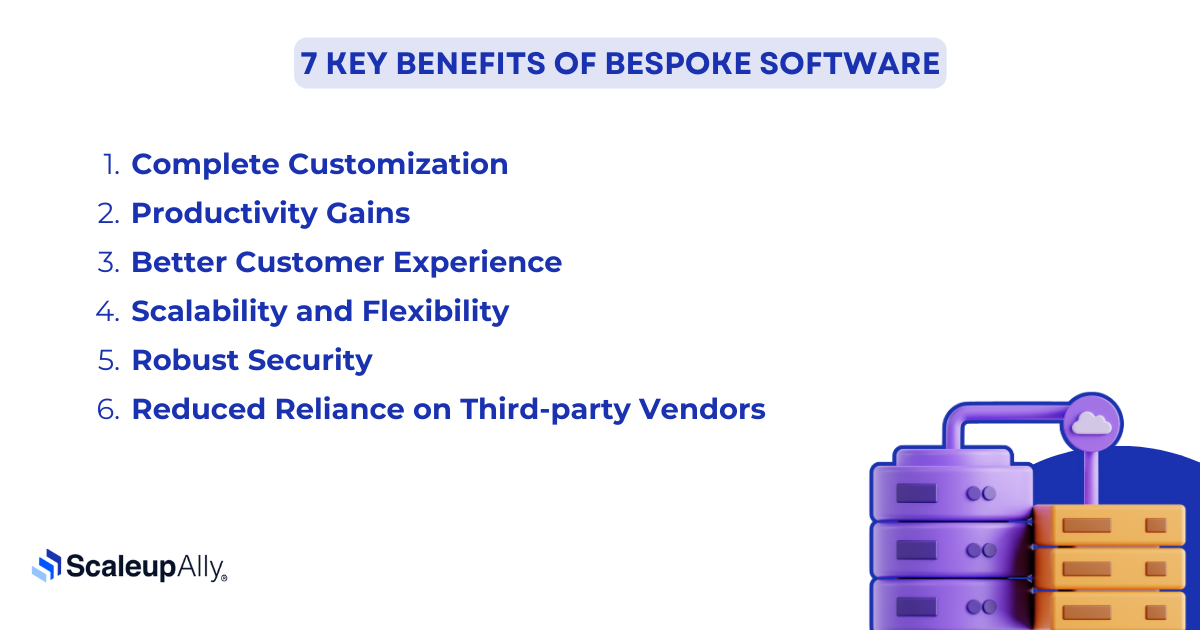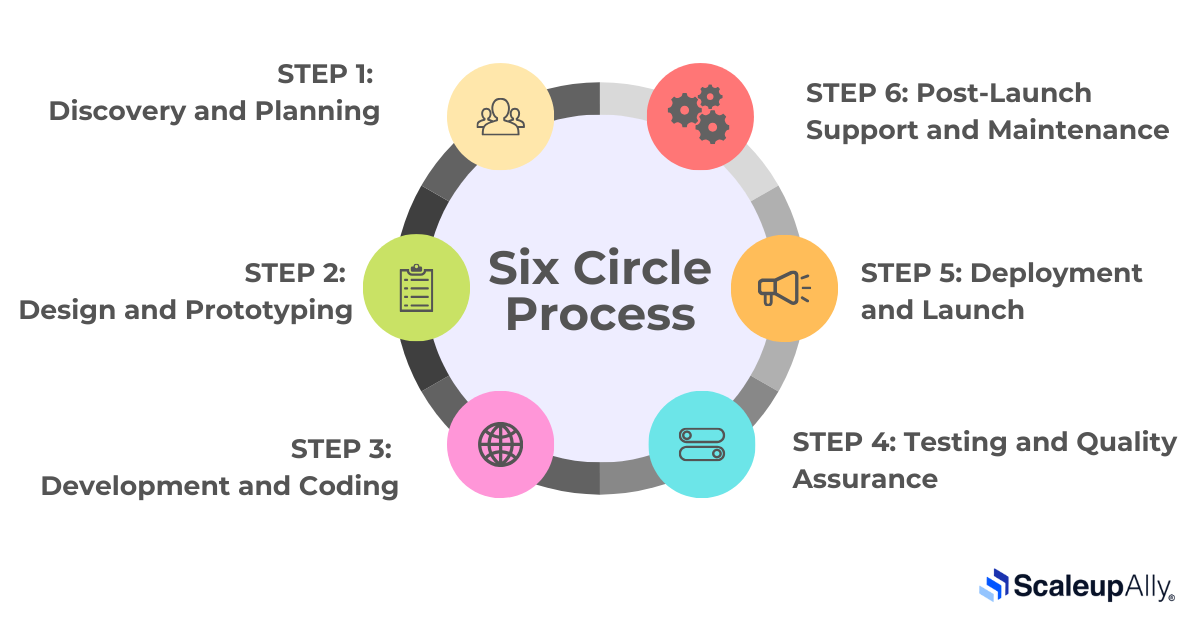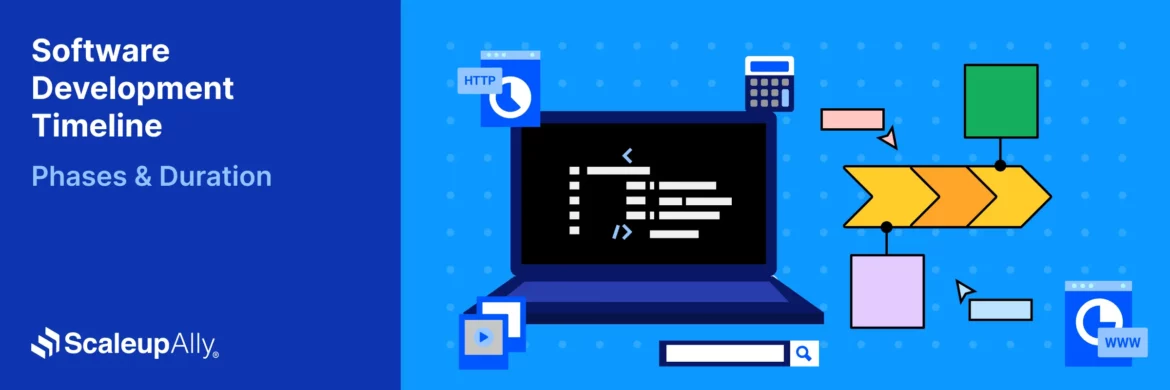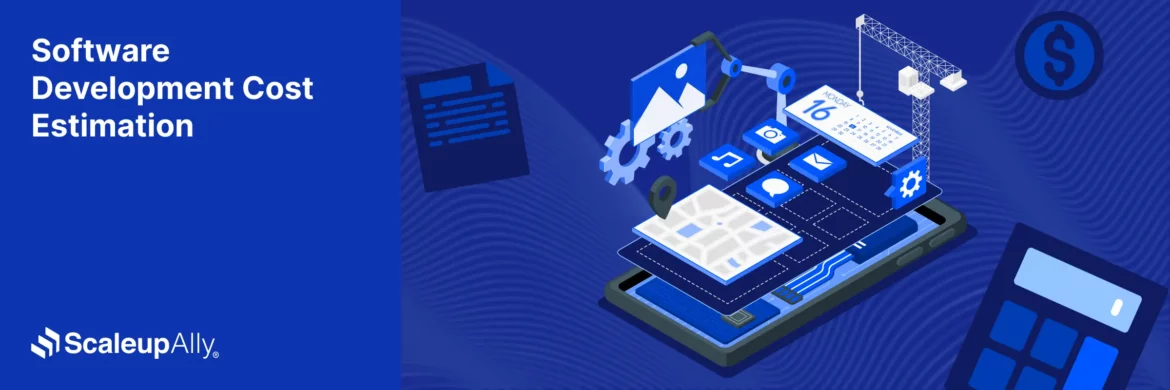
Bespoke Software: Everything You Need To Know
Suprabhat Sen | November 22, 2024 , 12 min read
Table Of Content
In these times, personalisation has taken a fiery turn, where individual choice is at the front seat. Everything around us is tipping at the edge of personal choice. With Big Data running the show, personalised products and commercialization for human wants and needs are setting the stage for data driven businesses.
In this, software has picked up its due pace and everything is now migrating to the cloud. The land is no more fun, it seems! Just kidding!
Here, when you think things through, for a business to survive and thrive, as AI knocks at our door, the midas touch of personalization surely adds to the growth. Now, within this context, any new entrant in the IoT structured business, software is a necessity. The market offers multiple options such as off the shelf software and bespoke software.
However, in this blog, we will only be exploring in depth about the bespoke software.
According to the latest study by Global Newswire, the global bespoke development market is projected to reach $85.9 Bn by 2028. What does it mean? What is a Bespoke solution? Bespoke solution, also known as custom software development, is in great demand, and it will be the reason for the digital world’s changing landscape.
Key Takeaways
- Unlike off-the-shelf solutions that are designed for a wide range of users, Bespoke software is created specifically designed for specific business vision.
- It provides scalability and flexibility, to address your unique challenges with custom-made features and functionality.
- The development process involves several stages: planning, designing, building, testing, and finally deploying the solution.
- Partnering with the right development team is pivotal for a smooth, successful rollout and long-term success.
- Once live, bespoke software requires ongoing maintenance and support to ensure it continues to run smoothly and evolves with your business needs.
What is Bespoke Software?
- What is Bespoke Software?
- Why Choose Bespoke Software For Your Business?
- 7 Key Benefits of Bespoke Software
- Difference between Bespoke and Off-the-shelf Software
- When to Choose Bespoke Software for Your Business?
- The Process of Developing Bespoke Software
- Choosing the Right Development Partner for Bespoke Software
- How ScaleupAlly Can Help?
- Final Thoughts
- Frequently Asked Questions
Bespoke Software development is the epitome of personalisation of the software development journey to meet the specific requirements of a business. Unlike off-the-shelf software, which is designed for a broad audience.
Bespoke software is developed with the exact specifications of a business in mind. Hence, it solves the particular challenge or curates the vision of the business, and aligns perfectly with existing systems. The best part of bespoke software is its customisable flexibility, scalability and adaptable ability that supports unique business needs and growth.
For businesses that have unique needs or complex workflows that cannot be met by generic solutions, bespoke software offers a high degree of customization.
Why Choose Bespoke Software For Your Business?
Businesses are opting for custom software development over off-the-shelf solutions, says GoodFirms study. This reflects the range of advantages bespoke software solutions offer. Some of these advantages are:
- Personalised Solutions: With bespoke software, a business can design a solution specifically for the aimed business operations, eliminating the need to adapt to the limitations of off-the-shelf products.
- Scalability: Since, the customisation is available, scaling when the need arises, or expansion happens is easier with it. One can add any new features or expand its capabilities over time without encountering the limitations of a one-size-fits-all product.
- Competitive Advantage: Not to iterate again, but having software built to the exact needs gives that extra fire that can outperform one’s competitors if used strategically.
- Better Integration and Automation in Software: Easily integrates with the existing tools, such as CRM, ERP systems, or financial software, making it an all rounder.
- Security and Data Protection: These advanced security features can be built and tested to protect sensitive data, that lets one’s business gain its customer’s confidence.
While bespoke software generally involves a larger upfront investment, the long-term benefits such as efficiency improvements, increased productivity, and the ability to make quick changes based on evolving needs can far outweigh the costs.
7 Key Benefits of Bespoke Software

Bespoke software offers a host of benefits that can significantly improve business operations. These include:
- Complete Customization: This is the USP, where brainstorming ideas translates into reality. Bespoke software is designed to completely avail the customization to meet the business requirements for any unique feature set, or a custom workflow.
- Productivity Gains: It allows scope for automating complex tasks which reduces redundancies. As a result, this leads to increased productivity, and efficiency in operations as employees spend less time on repetitive tasks and can focus on high value work tasks.
- Better Customer Experience: By integrating bespoke software into your customer-facing systems (such as your website or app), you can offer a more personalised and intuitive experience for your users, directly uplifting the loyalty of your customers.
- Scalability and Flexibility: Customisation frees the space for scalable affordability, as and when your business grows! Software scalability is part of the bespoke software system.
- Robust Security: Implementing security protocols becomes easier, and can be designed to comply with industry standards and regulations.
- Reduced Reliance on Third-party Vendors: For the obvious reasons, updates or patches can be done autonomously, as you have full control over the system’s maintenance and improvement.
These advantages make it an ideal choice for businesses seeking to optimise operations for maintaining that competitive edge we all worry about.
Difference between Bespoke and Off-the-shelf Software
Both bespoke and off-the-shelf software serve similar purposes, the main difference lies in their level of customization and flexibility.
| Feature | Bespoke Software | Off-the-Shelf Software |
|---|---|---|
| Customization | Fully build for specific business needs. | Limited customization. |
| Initial Cost | Higher upfront cost. | Lower initial cost. |
| Long-term Cost | Potentially more cost-effective over time. | Ongoing fees and add-ons. |
| Deployment Time | Longer development (weeks/months). | Quick deployment (days/weeks). |
| Scalability | Highly scalable with growth. | Limited scalability. |
| Security | Custom security features. | Standard security features. |
| Integration | Flawless integration with existing systems. | May need third-party tools for integration. |
| Maintenance & Support | Ongoing personalised support. | Vendor-dependent support. |
| Flexibility | Fully adaptable | Less flexible. |
| User Experience | Custom UX/UI. | Generic UX/UI. |
| Vendor Dependency | Low, full control. | High, depends on the vendor. |
| Example Use Cases | Unique, complex business models (e.g., fintech, healthcare, logistics) requiring specialised processes or workflows. | Varies. Can be less satisfying if the software doesn't meet all specific business requirements. |
When to Choose Bespoke Software for Your Business?
Now, when it comes to deciding when to choose which software solution, identifying core needs, challenges, and at what ladder of growth stage the company’s at, defines the decision parameters. Here are some scenarios for how one can decode which one to go for.
Choose Bespoke Software, when
- Your business has unique, complex processes that require specific features or workflows not available in standard software.
- Customization is a priority, where the software matches your exact needs, including user interface, functionality, and security.
- You plan to scale rapidly and need software that can evolve with your business, adding new features or changing as your needs grow.
- Your business has strict security requirements (e.g., compliance with industry standards, handling sensitive data).
- You require integration with existing internal systems or third-party tools that off-the-shelf software cannot support.
- Long-term cost efficiency is a goal, as bespoke solutions may offer better ROI by optimising your specific processes and reducing external dependencies.
- You need full control over the software’s future updates, maintenance, and direction, without relying on external vendors.
Choose Off-the-Shelf Software, when
- Your business needs are standard (e.g., basic accounting, email, project management, CRM) and are met by readily available solutions.
- Quick deployment of the software that’s ready to use right away with minimal setup.
- Your budget is limited and you need an affordable solution without high upfront costs for development or customization.
- You don’t need heavy customization and are okay with adapting your processes to fit the software.
- You have basic security and compliance needs that can be met by standard security features provided by vendors.
- You need support and maintenance from a well-established vendor and prefer predictable updates and pricing.
- You want minimal risk, here off-the-shelf software has been tried and tested, and you know it works for a wide range of businesses.
Quick Decision Guide
Go with Bespoke if:
✔️ Your business needs a custom solution that fits your processes.
✔️ Scalability, flexibility, and security are top priorities.
✔️ You’re willing to invest in a long-term, sophisticated solution.
Go with Off-the-Shelf if:
✔️ You need a quick, cost-effective solution for common business functions.
✔️ Customization isn’t critical.
✔️ You prefer a proven, ready-made solution that doesn’t require complex development.
The Process of Developing Bespoke Software

Process is the nuts and bolts of any software development. In this section, we discuss each phase, and what goes behind the scenes for a complete end-to-end bespoke software development life cycle.
STEP 1: Discovery and Planning
Understanding the requirements of the business, identifying problems areas, and defining functionalities, this phase involves it all. The scope, goals, and expectations get defined.
STEP 2: Design and Prototyping
This step involves wireframes, use-case scenarios, and user flow prototypes to visualize the software structure and user interactions.
STEP 3: Development and Coding
This phase begins with the designers turning the final visual style into a working piece of software by coding. In this stage, complete coding is done into the specifications and the working features constructed.
STEP 4: Testing and Quality Assurance
Complete software testing is carried out to verify that it performs its intended functions. Functional testing, security testing, user acceptance testing (UAT), and performance testing are included in this.
STEP 5: Deployment and Launch
The next step is to deploy the software into the production environment after it has successfully undergone all the tests and is fit for use. This step includes setting up servers, databases, and other necessary infrastructure.
STEP 6: Post-Launch Support and Maintenance
The software afterwards, upon deployment, enters the maintenance stage. It is in this stage that any bugs or poor performance are investigated and any changes or new features are done after analysis of user recommendations.
Choosing the Right Development Partner for Bespoke Software
Abundance of choice can sometimes misguide us into believing that we know what works best for us. Although, there are always some blindspots and knowledge gaps that can make us fall flat on our faces.
Therefore, to know how to evaluate the right development partner becomes vital. Here is what you need to look for in potential candidates:
- Experience and Expertise: Proven track record helps save both time and money. They must have proven proof of work in similar projects as yours and must understand your industry and challenges.
- Technical Skills: Define your tech stack, other technical aspects, that way you will be able to identify the most suitable development partner. This may include knowledge of specific programming languages, frameworks, and tools.
- Communication and Collaboration: Your development partner must understand and have suitable processes in place for better communication. Check for responsiveness, whether they are open to feedback or not, and willing to collaborate closely with your team.
- Portfolio and Case Studies: Review the company’s portfolio. See if they’ve successfully delivered projects similar to yours. This will give you an idea of their capabilities and the quality of their work.
- Support and Maintenance: Other than customisation scope, ongoing support and maintenance affects the post delivery performance of the software. A development partner who provides this after the deployment, with regular updates can really dictate how time and cost effective the entire journey will be.
By carefully evaluating these factors, one can find a development partner who will work with you to create a solution that aligns with your business goals.
How ScaleupAlly Can Help?
At ScaleupAlly, we specialize in helping businesses develop bespoke software solutions. Solutions that are personalized to their unique vision. From internal processes to customer engagement, to integrating new systems, we work side by side with you to deliver what you are aiming for.
This is not mere words, this is our commitment. Our experienced professional developers deploy the latest technologies, and the awesome Indian Tech Stack to create scalable, secure and bespoke software. From initial discovery to ongoing support, we bring forth end-to-end services that meet all your objectives.
We understand that every business is different, and that’s why we take a personalized approach to each project. Truly Bespoke in deeds and in action. Thinking of building your own bespoke software? Connect with us for a free consultation.
Final Thoughts
“Personalisation is when you go into the bar and sit down , and the bartender puts a whiskey in front of you without having to ask what you want,” as Jeff Bezos once famously commented.
Similarly, Bespoke software offers a great degree of customisation, scalability, and flexibility, making it the perfect choice for companies with big plans. Even if the development process might take longer and cost more upfront, the long-term advantages like better operating experiences, greater efficiency, giving the competitive edge is what makes the investment worthwhile.
Frequently Asked Questions
Q: How long does it take to develop bespoke software?
Generally it takes anywhere between a few months to over a year, depending on the complexity of the project, the size of the team, and the resources available.
Q: Is bespoke software more expensive than off-the-shelf solutions?
Yes! The amount of sophisticated efforts needed to build a good bespoke software generally involves a larger upfront investment. However, considering the long-term benefits, such as better alignment with business needs and scalability, can be successful in providing significant ROI.
Q: What is the difference between bespoke and custom software?
Overall, there is no significant difference between the two. Bespoke refers to a software specifically developed to meet the unique demands of a business, as opposed to off-the-shelf solutions.
Q: How is bespoke software maintained after deployment?
Bugs, updates, adapting to the changing time and needs after deployment requires ongoing maintenance This is typically managed by the development team through regular support contracts.
Q: Can bespoke software be integrated with other business tools?
Yes, bespoke software can be designed to integrate with existing business tools, such as CRMs, ERPs, or marketing automation platforms.
References:
Related Blogs

Top 20 Emerging Technologies of 2026
Discover the top 20 emerging technologies of 2026. Explore which innovations are driving change across healthcare, finance, manufacturing, and other crucial industries.
ScaleupAlly Team
Dec 16 ,
9 min read

Software Development Timeline: Phases, Duration & Estimation Guide
Understand the software development timeline with phase durations, key factors, hidden delays, and practical methods to estimate project time.
Suprabhat Sen
Nov 29 ,
16 min read

Software Development Cost Estimation Guide: What’s Included & What Affects the Price
Explore software development cost components, major pricing factors, and practical estimation methods to plan your project accurately from start to finish.
Suprabhat Sen
Nov 29 ,
14 min read


